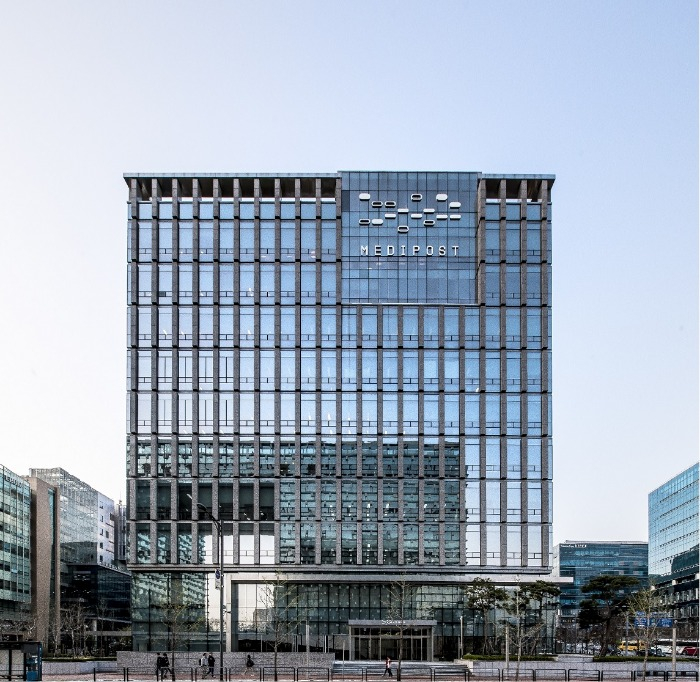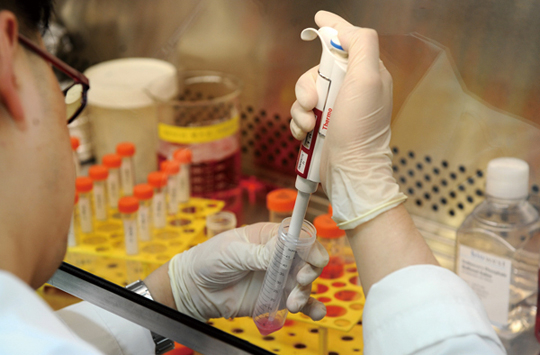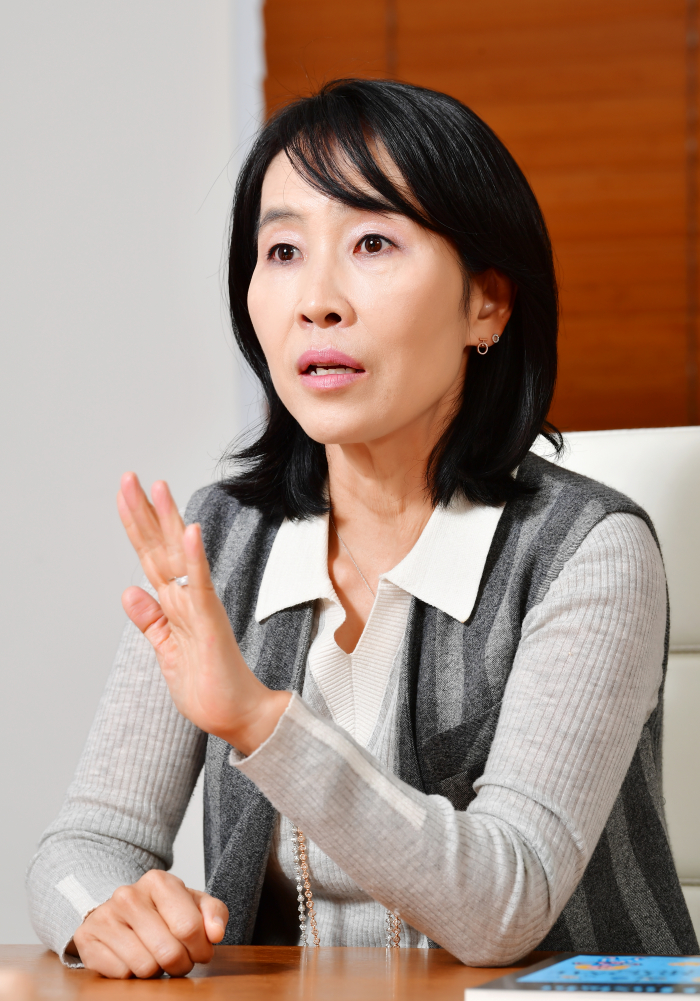Korean startups
Private equity consortium buys 30% stake in biotech firm Medipost
The consortium will become the startup's largest shareholder with $131 mn investment
By Mar 17, 2022 (Gmt+09:00)
3
Min read
Most Read
LG Chem to sell water filter business to Glenwood PE for $692 million


Kyobo Life poised to buy Japan’s SBI Group-owned savings bank


KT&G eyes overseas M&A after rejecting activist fund's offer


StockX in merger talks with Naver’s online reseller Kream


Mirae Asset to be named Korea Post’s core real estate fund operator



The consortium consisting of Seoul-based Crescendo Equity Partners and SkyLake Equity Partners will invest 160 billion won ($131 million) into the startup to become its largest shareholder.
The two private equity firms will have equal amounts of Medipost shares.
The company’s CEO Yang Yoon-sun will become the second largest shareholder with less than 5% stake in the company; compared to the current 6.16%. Yang will maintain her post and continue being involved in the company’s management.
The medical doctor from the prestigious Seoul National University, founded Medipost in 2000.
The company collects, processes, and preserves umbilical cord blood. As South Korea’s No.1 cord blood bank, it allows the future potential use of stem cell therapy both for clients' own families and public uses.
Its field of business began expanding in 2010 with the development of stem cell therapy.

Cartistem boasts the world’s highest accumulated sales in the stem cell therapy sector.
In South Korea, it is best known for treating the country’s former men's national soccer head coach Guus Hiddink in 2014.
“Yang has decided to grow Medipost into a leading global manufacturer of stem cell therapy,” an investor told The Korea Economic Daily. “The company struggled financially recently but the latest investment relieved most of the burden.”
OVERSEAS CLINICAL TRIALS
Medipost plans to use the fresh injection of funds to enter overseas markets.
The reason why the first generation biotech firm founder had given up the largest shareholder title after 22 years is the need to attract large scale investment, people familiar with the decision explained.
Investor sentiment for South Korea toward biotech firms have soured in recent months, hit by the SillaJen scandal back in January. On Wednesday, another biotechnology startup Voronoi Inc. scrapped its plan to go public previously scheduled for sometime this month.
“Medipost has been seeking various channels for new funds for the past few years as its planned clinical trials abroad got delayed,” an industry insider shared.
The financial structure also worsened with such delays.
Based on its consolidated financial statement, Last year’s revenue surged 12.8% on-year to reach 54.9 billion won. Its operating loss, however, skyrocketed 117% to reach 5.3 billion won, hit by research and development costs and facilities investments.

The global expansion plan will begin in Japan with the third clinical trial slated for the first half of this year. The company also completed two trials in the United States back in 2018.
The third clinical trials are typically the most costly as the scope of trial is the biggest for the final round of evaluations.
In addition to Cartistem, the company is also pursuing clinical trials of SMUP-Cell. The new stem cell therapy product passed its second clinical trial in South Korea last October.
Write to Chae-Yeon Kim at why29@hankyung.com
Jee Abbey Lee edited this article.
More to Read
-

-
 Korean biotech startup signs license deal with US firm
Korean biotech startup signs license deal with US firmFeb 17, 2022 (Gmt+09:00)
1 Min read -
 Upcoming IPOsKorea’s Voronoi in talks with global firms on drug designs
Upcoming IPOsKorea’s Voronoi in talks with global firms on drug designsMar 04, 2022 (Gmt+09:00)
2 Min read -

-
 PharmaceuticalsKorean pharma joins global race in RNA therapeutics development
PharmaceuticalsKorean pharma joins global race in RNA therapeutics developmentJan 21, 2022 (Gmt+09:00)
4 Min read
Comment 0
LOG IN


